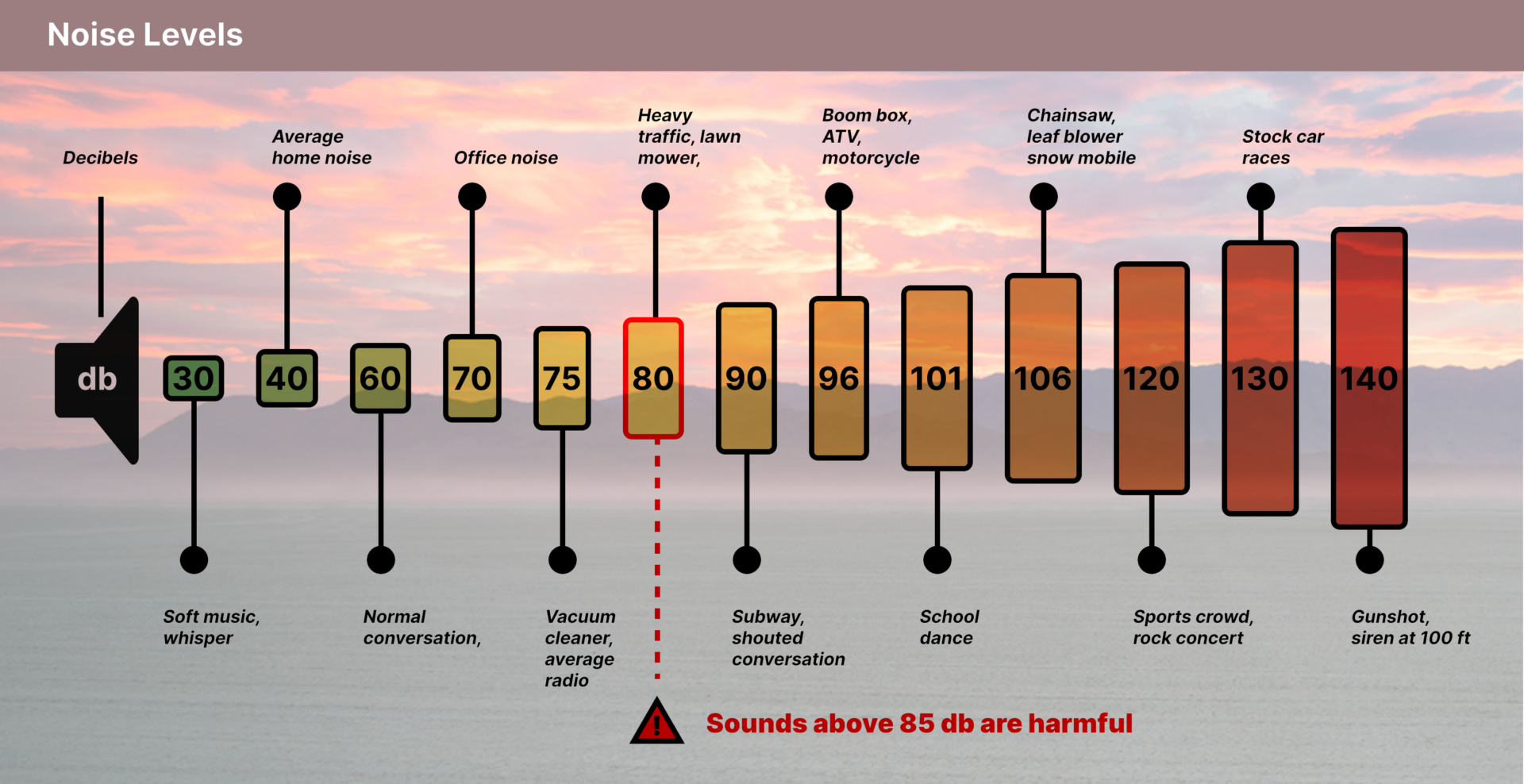Updated July 2023
The playa is a natural amplifier and it doesn’t take much to produce a large amount of sound. Bass travels multi-directionally and cannot be effectively contained with any structures. This gives “sound” as an art form an unfair advantage over other art forms. Burning Man is dedicated to radical self-expression, andit is also dedicated to creating community. This means we all must find a way to get along with our neighbors. History has led us to this point where we MUST give guidelines on amplification and limit space for this sort of art.
The following guidelines make up our basic sound policy:
- Neighbors should talk to one another when sound becomes a problem and try to resolve the issue through direct communication.
As a community, we need to work together to keep sound at desirable levels. This means that everyone is personally responsible for how they affect everyone else’s experience.- If your neighbor believes your sound is too loud, you must work with them to find an acceptable volume. You will need to check in with those you are camped near to find out what other events are planned and work with them to create a schedule. With these actions you should be able to handle all of your own sound issues.
- If everyone works together there will be no need for Black Rock Rangers to get involved. A community effort is needed to pull this off.
- Large-scale sound installations (colloquially known now as Sound Camps) MUST be located in the Large Scale Sound Zone (facing 2:00 and 10:00 avenues). They may express themselves unless community complaints persist. Camps on Esplanade may amplify sound 100’ into the open playa before conversational levels are expected.
- Within the city, sound systems should point internally within the camp producing the sound. Sound amplification should only be loud enough so that people can speak at a conversational level at the border of a neighboring camp or at the center point of a street, whichever is nearest to the source of the sound.
- Conversational levels are defined as 60 decibels (dbA mid-range frequencies) at the border of a neighboring camp or at the center point of a street, whichever is nearest to the source of the sound. Bass level (dbC – low-range frequencies) shall be negotiated with neighbors.
- Any complaints about excessive sound will become the concern of the Black Rock Rangers. Concerns about excessive sound can result in:
- Volume check and mediation between camps
- Volume check and a final warning on complaints
- Disabling of equipment
- Notification of the Placement Team and possible impact to a camp’s standing and future placement
Loud vs. Quiet
Again this year we will have no “loud” and “quiet” sides of the city. These are subjective terms, and they create expectations that may be impossible to meet. These terms create infinite gray areas regarding what is perceived to be “loud” or “quiet,” and this results in difficult negotiations between neighbors.
Large-scale Sound Zone
All large-scale sound systems will be located in the Large-Scale Sound Zones along 2:00 and 10:00. Like all theme camps, these camps will be encouraged to be as creative and interactive as possible. The primary rule is that all speakers MUST be turned away from greater Black Rock City toward the open playa at all times and not point internally into the city. Sound levels for sound systems on the Esplanade will be measured for conversational levels 100’ in the open playa across from the Esplanade.
Sound Complaints
If you believe your neighbor’s sound is too loud and you are not able to effectively negotiate a solution, you may report this to a Black Rock Ranger station or directly to a Black Rock Ranger. (Please do not mistake a BLM Ranger for our own.) Black Rock Ranger stations are located at 3:00+C, 9:00+C, and Esplanade+5:45. A complaint should contain:
- The exact SOURCE of the sound. (Vague reports will result in no action or ineffective action.)
- The exact TIME of the disturbance. (Vague reports will result in no action or ineffective action). Please report problems when they happen, although reports filed the next day can be useful with persistent problem camps. We will not take action on issues of taste.


